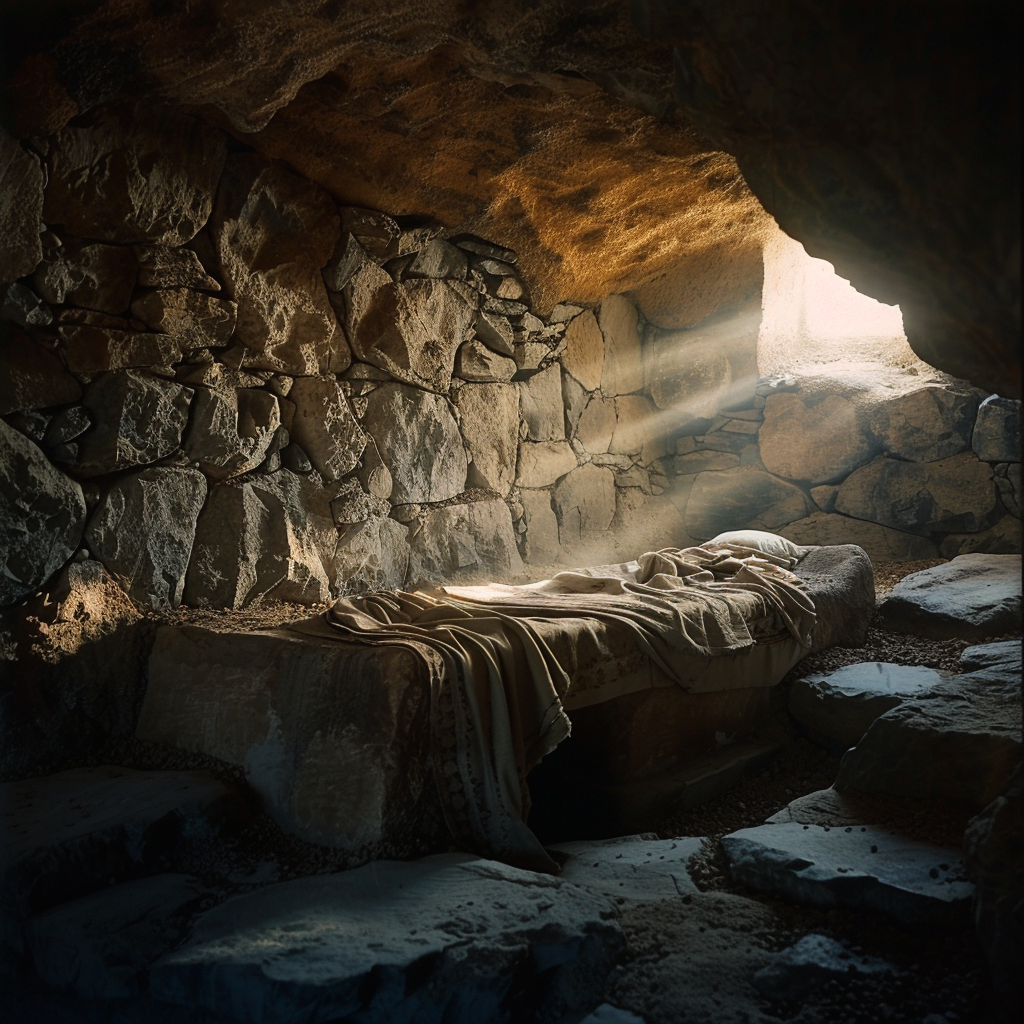Mark
MARK
Its’ author was Mark, who is also called John Mark. John was his Jewish name; Mark (Marcus) his Roman name. He was the young man who abandoned Paul and Barnabas on their first missionary journey (Acts 13:5, 13). He was the one who Paul refused to have on his second missionary journey (Acts 15:36-40). Later, once he matured a bit, he became Paul’s companion in Rome (Col 4:10; Phil 24). He was an associate of Peter. Later, when Paul was dying in prison, he asked that Mark come and be with him (II Tim 4: 4:11). Church tradition has it that he went on to become the Bishop of Alexandria, Egypt. So Mark, like many of us, can recover after a failure and succeed.
The gospel of Mark is thought to be the first of the gospels to be written. In one sense you could call this gospel Peter’s, since he was a close associate of him and writes quite a bit about Peter. It is also the shortest of the gospels.
As was mentioned in the introduction to the New Testament, Mark’s audience was Rome. Unlike Matthew’s Gospel, you won’t find the genealogy of Jesus. Romans were more concerned with what Jesus did than where he came from. Nor will you find many quotes from the Old Testament. The Romans would not be impressed with the Old Testament. There is one long discourse that is found in Matthew, and in Luke. The subject of this discourse is the second coming of Jesus (Matt 24-25, Mark 13, Luke 21). The fact that the second coming is repeated in each of these three Gospels says something about the importance of the subject. It is too bad that this subject is neglected in so many churches.
Mark 1:22 “The people were amazed at his teaching, because he taught them with authority, not as the teachers of the law.” The teachers of the law, when they were arguing a point, would always refer to respected scholar. Jesus apparently didn’t do that. Why should he, since he is a higher authority than any human scholar.
Mark 1:35 “Very early in the morning; while it was still dark, Jesus got up, left the house and went off to a solitary place, where he prayed.” This is a description of what Jesus did. It is not a prescription that we must follow. Too often I have heard people say that you should have your “quiet time” in the morning. An instructor at the Bible College that I graduated from used to teach at a summer camp. The camp had a policy which read, “No Bible, no Breakfast.” In other words, you had to pray and study in order to get breakfast. Well, that works fine, if you are a morning person. You will notice that the Bible tells us WHAT to do; but not HOW to do it.
Mark 2:5 “When Jesus saw their faith, he said to the paralytic, ‘Son, your sins are forgiven.’” The teachers of the law said that Jesus was blaspheming (which is punishable by death). Who can forgive sins but God alone, they thought. Jesus knew what they were thinking so he asks them what is easier, to heal or to claim that his sins are forgiven. Now Jesus could have simply healed him without saying that his sins were forgiven and prevent a conflict with the Pharisees, but he didn’t. This is his first conflict with the Pharisees.
Mark 2:15 “While Jesus was having dinner at Levi’s house, many tax collector and sinners were eating with him and his disciples.” Those labeled as “sinners” were those who were lax in obeying the Laws. Jesus responded by saying that it is not the healthy who need a physician, but the sick. If a doctor is willing to risk physical contagion from the sick, why should Jesus worry about ceremonial contamination? This is his second conflict.
Matt 2:18 “How is it that John’s disciples and the disciples of the Pharisees are fasting, but yours are not?” There is only one fast required in the Old Testament, the Day of Atonement. Over the years the leaders have added many more until it got to the point that the Jews were expected to fast twice a week (Luke 18:12) on Mondays and Thursdays. Jesus did observe some of the traditions of his day, but didn’t feel obligated to observe all of them, as if they were on the same level of importance as the Laws of God. Likewise, if you don’t observe your church’s man made traditions, such as Lent, Ash Wednesday, etc. some might criticize you, also. This is his third conflict.
Mark 2:24 “Look, why are they doing what is unlawful on the Sabbath?” The Jews have taught that Jewish law can be broken to save a life. In Lev. 18:5 “For the man who obeys them will live by them.” According to Jewish tradition, there are three exceptions to this rule: murder, as when you murder one person to obtain an organ for the saving of another; idol worship and certain types of illicit sexual behavior. Jesus makes the point that the Sabbath is for the benefit of the individual (v 27); it should be a blessing, something that we are to live by not die for. This is his fourth conflict with the Pharisees.
Mark 3:6 After Jesus healed a person on the Sabbath; the Pharisees went out and began to plot with the Herodians how they might kill Jesus. In the eyes of the Pharisees, healing was considered “work.” A person could take medicine to ease pain; but a poultice could not be applied to draw out an infection on the Sabbath. They were plotting to kill Jesus on the Sabbath, yet they criticized him for healing someone on the Sabbath. So in their minds, plotting to kill on the Sabbath was acceptable. Shouldn’t they have rejoiced at the healing of the person? This is the fifth conflict.
Mark 3:14 He lists his twelve apostles (one who is sent). Jesus gave Simon a new name, Peter. James and John were nicknamed “sons of thunder,” or “sons of feelings.” Apparently they were easily excitable personalities. James was the first apostolic martyr (Acts 12:2). Thaddaeus is the same as Judas, the brother or son of James (Luke 6:16). Simon the Zealot might refer to the fact that he was once part of a radical group that later revolted against Rom (A.D. 66-70). Or, perhaps he was a zealot of Jesus.
Mark 6:3 “Isn’t this Mary’s son and the brother of James, Joseph, Judas and Simon?” Whose name is missing in the list of family members? Joseph! The suggestion is that Joseph had died.
Mark 7:9 “You have a fine way of setting aside the commands of God in order to observe your own traditions.” Here Jesus is referring to what is called a Corban (verse 11) where some Jews would neglect caring for their aged parents, as was required, by claiming that their money had been given to the Temple to do the work of God. This was a cruel way of justifying, by way of man-made traditions, the God commanded care of one’s parents.
Mark 9:38 “Teacher,” said John, “we saw a man driving out demons in your name and we told him to stop, because he was not one of us.” “Do not stop him,” Jesus said. Jesus said that he would build his church (Matt 16:18). He did not say that he would build his “denominations.” Today, according to The Handbook of Denominations in the United States, there are over 240 denominations in the U.S. There are eleven Methodist and eleven Lutheran denominations. Even they can’t get along with one another. If you think that’s tragic, there are twenty-seven Baptist denominations. I don’t think that is what Jesus had in mind. These divisions probably started in the Corinthian church (I Cor 3).
Mark 10:18 “Why do you call me good?” Jesus answered. “No one is good-except God alone.” Jesus may have been asking, “Why do you call Me good when you do not accept My deity?”
Mark 10: 33-34 “We are going up to Jerusalem,” he said, “and the Son of Man will be betrayed to the chief priests and teachers of the law. They will condemn him to death and will hand him over to the Gentiles, who will mock him and split on him, flog him and kill him. Three days later he will rise.” The Jews would turn Jesus over to the Romans because the Jews did not have the authority to impose capital punishment. He also said that he would rise after three days. So, if he did not, then he was a liar. This undermines the liberal argument that Jesus was not God but only a great “moral teacher.” Moral teachers don’t make false claims of deity or lie to their followers.
Mark 11:12-14 “Seeing in the distance a fig tree in leaf, he went to find out if it had any fruit. When he reached it, he found nothing but leaves, because it was not the season for figs. Then he said to the tree, “May no one ever eat fruit from you again.”
The fig tree is unique in that it displays leaves in March and in early April little knobs, not real figs, but a forerunner of figs. So when Jesus saw the tree with leaves, he assumed it would have these knobs, which would indicate figs in six weeks later. When no knobs were found, it was clear that there would be no figs. The fig tree represents Jerusalem, unresponsive to Jesus, producing no fruit, and is cursed to be destroyed in 70 A.D.
Mark 11:25 “And when you stand praying, if you hold anything against anyone, forgive him, so that your Father in heaven may forgive you your sins.” How many times have we recited the Lord’s Prayer and had our prayers invalidated because of the bad feelings we have towards others?
If you read the book of Amos you will find the Israelites performing all of the rituals required, but they were not living an ethical, moral life. God is not impressed with empty rituals.
Mark 12:38-40 “Watch out for the teachers of the law. They like to walk around in flowing robes and be greeted in the marketplaces, and have the most important seats in the synagogues and the places of honor at banquets. They devour widows’ houses and for a show make lengthy prayers. Such men will be punished most severely.” This is another passage that shows that not everyone who is lost will be punished equally.
Mark 13:11 “Whenever you are arrested and brought to trial, do not worry beforehand about what to say. Just say whatever is given you at the time, for it is not you speaking, but the Holy Spirit.” I have heard teachers and preachers say that they have no idea what they will teach or preach on, they will rely on the Holy Spirit to tell him. This is just an excuse for laziness. The context is when they are persecuted.
Mark 13:26,32 At that time men will see the Son of Man coming in clouds with great power and glory . . . No one knows about that day or hour, not even the angels in heaven, nor the Son, but only the Father.” Mark May 21st 2011 on your calendar. This is the date that a radio preacher says Jesus will return and the righteous will be raptured. Five months later, on Oct 21, the entire universe will be annihilated. I invite you to go to the Frequently Asked Questions section and read the article, The End of the World . . . Again?
Mark 14:55 “The chief priests (Sadducees who had charge of the temple) and the whole Sanhedrin were looking for evidence against Jesus so that they could put him to death, but they did not find any.” The Sanhedrin was like our Supreme Court. It consisted of seventy members: priests, elders and Scribes (teachers of the law) mostly Pharisees, plus the High Priest. As much as they wanted to find a reason to justify the killing of Jesus, they couldn’t. Not fitting in with the religious community of his day was not a capital offense.
Mark 15:1 “Very early in the morning, the chief priests, with the elders, the teachers of the law and the whole Sanhedrin, reached a decision. They bound Jesus, let him away and handed him over to Pilate.”
Why the hurry? In part, because the day the Passover lambs were to be slain was a very busy day and the priesthood needed to be on duty by the afternoon. Also, if they waited, the Romans’ daily executions would already be carried out.
Mark 15:10 “. . . knowing it was out of envy that the chief priests had handed Jesus over to him.” Even the local corrupt secular official knew that that Jesus was innocent and that it was envy which motivated these pious religious “leaders.”
Mark 15:22-23 “They brought Jesus to the place called Golgotha (which means Place of the Skull). Then they brought offered him wine mixed with myrrh, but he did not take it.” The giving of a sedative/pain killer is advices in Prov. 31:6, “Give strong drink to those who are perishing, wine to those who are in anguish.”
Mark 15:23 “It was the third hour when they crucified him.” This is about 9 a.m. For you military veterans, that means 0900 hours.
There were two daily worship services in the Temple. Every day a male lamb was offered up as a burnt offering for the morning sacrifice. At the time Jesus’ hands were lifted up the hands of the priests in the Temple were being lifted up to pronounce the priestly blessing. Jesus was the “morning sacrifice.”
Mark 15:27 “They crucified two robbers with him, one on his right and one on his left.” These are the same positions that the sons of Zebedee, James and John, had coveted.
Mark 15:32 “Let this Christ, this King of Israel, come down now from the cross, that we may see and believe.” It wasn’t more miracles that they needed in order to believe, it was a new attitude.
Mark 15:38 “The curtain of the temple was torn in two from top to bottom.” This was the curtain that separated the Holy Place from the Most Holy Place, which was entered only once a year on the Day of Atonement (Lev 16 & Heb 9:7). The fact that it was torn from the top indicates that it was a supernatural act.
Mark 15:46 “So Joseph bought some linen cloth, took down the body, wrapped it in the linen, and placed it in a tomb cut out of rock.” By caring for the dead they rendered themselves Levitically unclean. As a result they were disqualified from eating the Passover that evening. For those who could not eat the Passover, Numbers 9:10-11 provides an alternate date, a month later.
Mark 16:9-20 This section does not appear in some manuscripts. It seems strange that the gospel would end in verse 8 with women trembling and bewildered. Or that the fulfillment of his promise that he would be seen by the disciples in Galilee (v 7) is not recorded. The early church inserted both the longer and shorter version which indicates that they felt that it was left out by mistake. Perhaps the longer ending is the correct one, but was lost in the early transmission of the text.
Mark 16:18 “. . . they will pick up snakes with their hands; and when they drink deadly poisons, it will not hurt them at all; they will place their hands on sick people, and they will get well.”
The Apostle Paul did “pick up a snake” in Acts 28:1-6 and he was unharmed. There is no record in the New Testament of anyone drinking poison without harm. This passage (verses 15-18) is given to the Apostles, not to be taken for us today. As for “snake handling,” Jesus is referring to people who, like Paul, came in contact with a snake by accident, not on purpose. As for the promise of healing in verse 18, I refer you again to the article “Does God Heal” in the Frequently Asked Question section of this website.
Recent Articles

Share this:
Start Here...
Why Study the Bible?
Don’t many consider the Bible to be just a book of myths? Why do we read the Bible rather than the sacred literature of other religions?
How do we know that it is from God? How do we know that what we have today is an accurate translation from the original? Is the Bible complete or have there been some books that have been lost?
We should be able to answer these questions, and there are answers! So start here!
Answers to Common Bible Questions



Questions?
Send us your questions or comments. We respond to every message.
About us
Encouraging Everyone to Study the Word of God and do the Work of God.
Useful Links
Contact info
Join our family
Contact Us
We will get back to you as soon as possible
Please try again later
The Berean Bible Ministry
This web site is dedicated to the study of the Bible, with no advertising and no popups. It is supported by our Bible study group.




